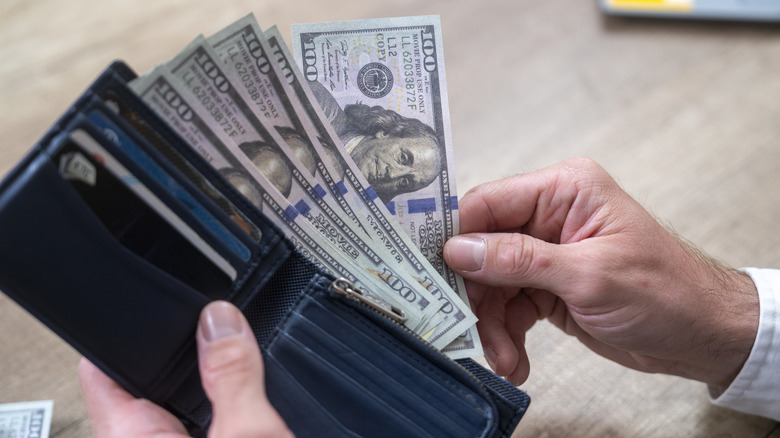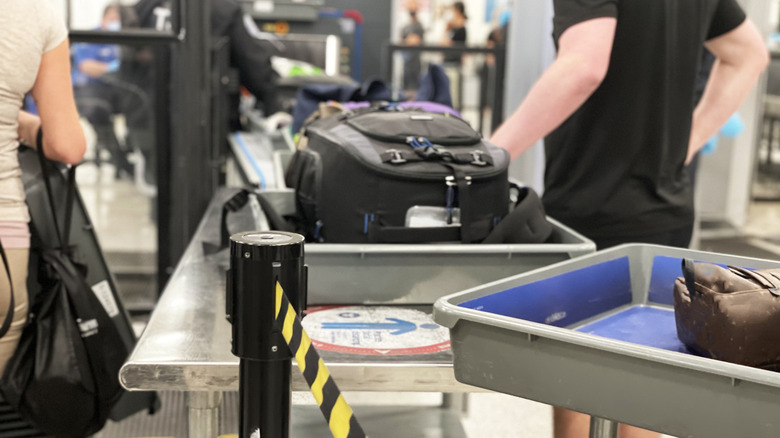Carrying A Lot Of Cash Through TSA Comes With One Unpleasant Risk
If you're like lots of folks, paying for something means pulling out your card or phone and tapping away. Same thing goes for traveling abroad, even in countries typically overlooked by travelers in lieu of big-name destinations like Italy or Spain, cash seems to be less and less common. Nonetheless, cards aren't universal. As a traveler, having some cash is still a good backup in case your cards stop working — just don't carry too much. If you've got over $10,000 on you when you're trying to cross country borders, you're going to have to declare it to Customs and Border Protection (CBP).
The idea of carrying $10,000 in your wallet may seem ridiculous to plenty of people. Especially considering that a cash amount of $50 to $100 per day per person is considered generally reasonable for a vacation. But if you do have loads of cash on you for some reason, $10,000 is the United States' threshold for declaration. Within the national borders of the U.S., like crossing from state to state, you don't have to declare your money. However, when traveling in or out of the U.S., you do.
Bear in mind that different governing bodies have different declaration limits that travelers should check. The limit for the E.U. is also 10,000, but it's in euros (about $11,784 at the time of writing). In Japan it's ¥1,000,000, which is about $6,766 at the time of writing. In the UAE it's AED 60,000, which is about $16,337 at the time of writing. These limits don't only refer to one type of currency, but all total currencies on your person. In the U.S., not declaring your cash comes with stiff penalties equalling $500,000, 10 years in jail, and the loss of your undeclared cash.
Tips for taking cash through airport security
In the U.S., declaring cash at an airport means filling out a customs form called CBP Declaration Form 6059B. This is the familiar form that gets submitted when you land in the U.S., where you declare whether or not you're carrying produce or were in contact with livestock, among other things. Since this form goes to Customs and Border Protection (CBP), readers might be wondering how the TSA fits into cash declarations. After all, they already banned weighted stuffed animals for children, don't allow wireless curling irons for pesky hair troubles, and have not approved certain paint supplies for artists. Can they ban or confiscate your cash, too?
Thankfully, no, the TSA can't legally ban or confiscate your cash. But, they still play an implicit role in cash declarations when leaving the airport. It makes sense that if you chuck a duffle bag of $20 bills on the airport security conveyor belt it's going to look suspicious, even if the bag doesn't contain $10,000. And, the TSA can detain suspicious persons until the proper authorities arrive, especially if said persons are suspected of being involved in money laundering or drug trafficking.
Ultimately, if you have to transport large amounts of currency, it simply isn't worth it to carry it on your person. However, if you do end up carrying a lot of cash at the airport, some attorneys suggest placing your money separately in the security bin at the airport to be transparent with the TSA. You can also download, print, and fill out FinCEN Form 105 – which contains information about cash on your person — and hold onto it when leaving the U.S. That way, if the TSA gives you trouble in the airport, you've got an extra layer of protection.

